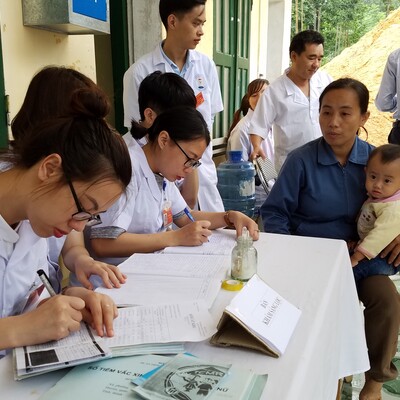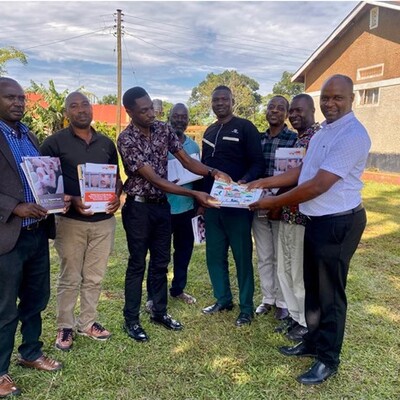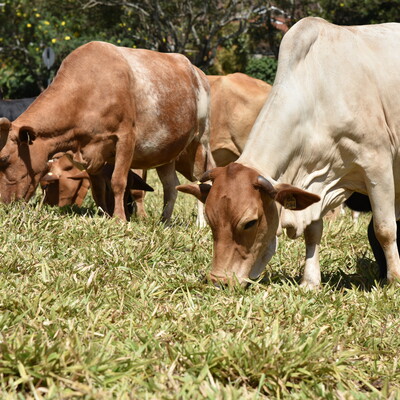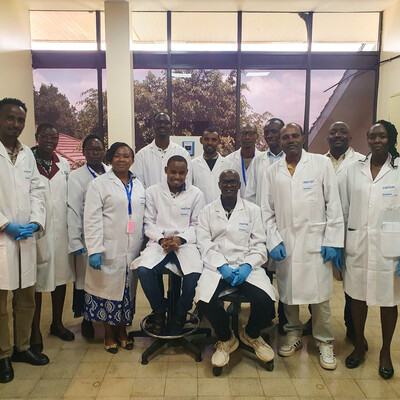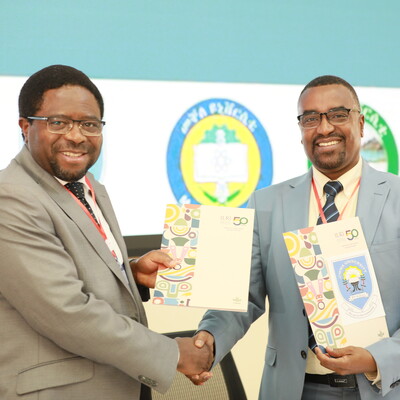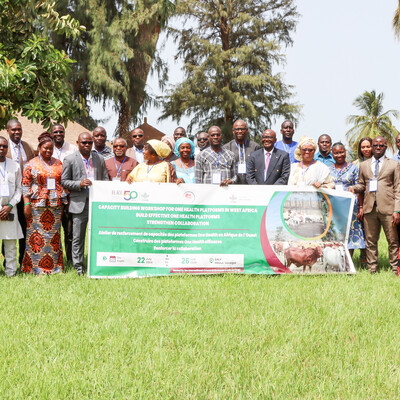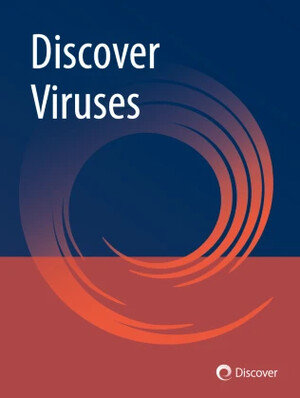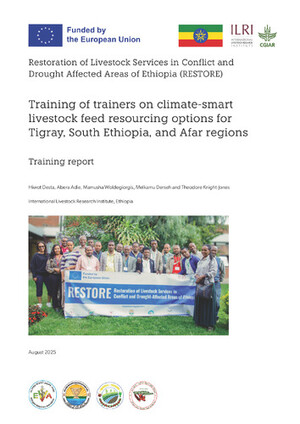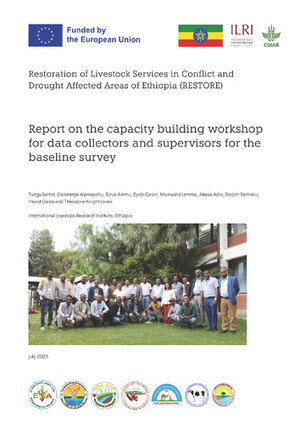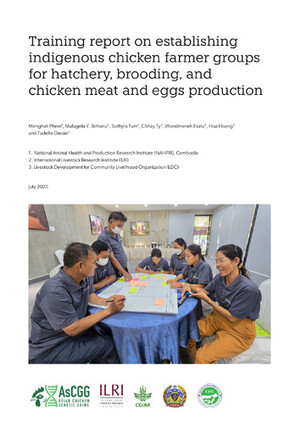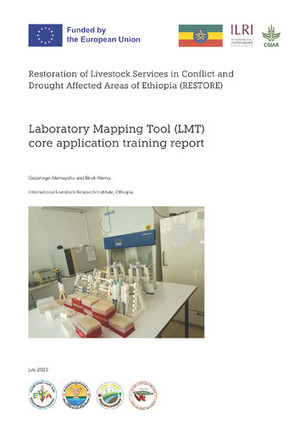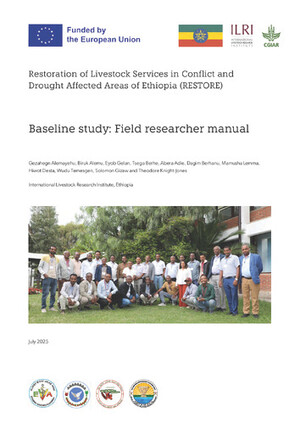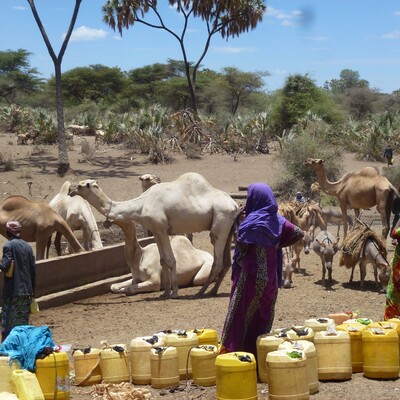
Winners of the CapDev Grand Challenge research pitching contest represent the bright future of agri-food research
On April 19, ILRI hosted a virtual award ceremony for the CapDev Grand Challenge research pitching contest which had been held a week earlier on April 13. In the week leading up to the ceremony, a panel of seven judges led by chief judge Judith Ann Francis reviewed the research pitches from all 30 contestants before eventually deciding on the winners. Key review criteria included the research problem and its importance, impact pathways, sustainability of the research and audience engagement.
‘I can confirm that the scientists lived up to the moment’, said Francis before announcing the winners. ‘The results confirm their tenacity and commitment to science and achieving transformational change in livestock agri-food systems.’
The first award was given to Sarah Nyanchera Nyakeri, an MSc graduate fellow at ILRI, who was declared the overall winner of the ILRI category for her presentation titled ‘Identification of Virulence factors as novel vaccine targets for bovine pleuropneumonia by Whole Genome Saturated Mutagenesis’. Nyakeri’s unique ability to explain such a complex topic clearly and concisely is what made her presentation stand out.

Sarah Nyanchera Nyakeri's research pitch slide
‘I’ve learned that using the simplest words doesn’t make you less of a scientist. It can actually make you a great scientist’, said Nyakeri. The reason for that, she went on, is that ‘people are looking for solutions that make their lives better’. However, most people don’t spend their time reading through scientific journals, so ‘you need to connect with people in the spaces they’re in and show people how what you’ve discovered can help them’, said Nyakeri. ‘Otherwise, it will be difficult to implement solutions.’
In the future, Nyakeri aims to continue translating the lessons she has learned during the CapDev Grand Challenge into practice—‘I want to make science as communicable as possible.’

In addition to Sarah, there were five other first-place winners of different categories. In the partners category, the judges awarded Waseyehon Assen Abate, a grantee of the International Foundation for Science, first place for his presentation titled ‘Exploring the potential of locally grown Amaranthus caudatus grain seed as poultry feed’. Abate was grateful for the opportunity to have participated in the contest, saying that ‘learning how to properly pitch your research is one of the most important skills a researcher needs to develop’. Moving forward, Abate is eager to utilize his new skills to ensure his research has an impact on the ground.

In the women in livestock research category, Linda Guantai, a research associate at ILRI, received first place for her presentation titled ‘Tackling antimicrobial resistance using a combination of phages and antibiotics’. Like Abate, Guantai has ‘gained an understanding of how to effectively communicate science, even to those who are non-scientists'. In light of her experience, Guantai sees the CapDev Grand Challenge process as an important tool for growing the next generation of researchers. ‘I have been recommending more people to participate next year’, she said.

ILRI PhD fellow John Juma was awarded first place in the PhD student category for his presentation on the ‘Genomic epidemiology of Rift Valley fever in Kenya’. Reflecting on his achievement, Juma noted that it will ‘boost my confidence in communicating my research findings and what they mean to diverse audiences'. As Juma transitions out of graduate training and into his career as a researcher, he intends to utilize the communication lessons he learned during the contest to influence decision-makers.

In the MSc student category, Alex Mabirizi, an MSc graduate fellow at ILRI, was awarded first place for his presentation titled ‘The effect of combining Peste des Petits Ruminants, Contagious Caprine Plueropneumonia and Capripox vaccines on immune response of goats and sheep’. For Mabirizi, the contest ‘highlighted the need to communicate clearly to the wider community without excessive use of scientific jargon’. After his positive experience in the research pitching contest, Mabirizi is looking forward to the rest of the CapDev Grand Challenge process and his continued growth as both a researcher and communicator.

The final first-place award in the NARS early career category was given to Antony Oyugi, an intern of Kenya’s Directorate of Veterinary Service for his presentation titled ‘The effect of rainfall on enhancement of nitrous oxide emissions from cattle manure’. ‘Every candidate put their best foot forward, and that made winning very special’, said Oyugi. ‘I have learned that self-belief is really important.’ Reflecting further on the contest, Oyugi added that ‘it made me look at how important it is to ensure scientific findings are relayed to the community for greater impact’.

The judges then gave one final award—the special recognition award—to Tushar Kumar Dey, an ILRI PhD fellow who has participated in the contest since the 2019-2020 cycle. The judges all agreed that Dey’s consistent and passionate participation has resulted in tremendous improvement. ‘Through this contest, I began to consider the key factors in my research and how to communicate them to people of various backgrounds in order to persuade them’, said Dey. ‘This knowledge will benefit me in all facets of current and future study’.

After the awardees were announced, Professor Monty Patrick Jones delivered the ceremony's keynote address. Jones is the former Minister of Agriculture, Forestry and Food Security for Sierra Leone and co-winner of the 2004 World Food Prize. He has worked for IITA and AfricaRice and was named one of the hundred most influential persons in the world by Time Magazine in 2007.
Jones began by noting that although agriculture is central to most African economies, there remains ‘a need to develop capacity to attain food and nutrition security’. This is ultimately what makes the CapDev Grand Challenge process so important. ‘The package of soft skills that these next-generation researchers will acquire by going through the CapDev Grand Challenge over the next ten months will collectively make a significant contribution in the acceleration of agri-food systems transformation’, said Jones.
Before concluding the ceremony, Jones recognized the accomplishments of not only those who had won an award but all those who participated in the contest. ‘I congratulate all of you that have received the award today and all who will go through the 10-in-10 training. Indeed you are all winners. You have a bright future.’
Overall Winners (ILRI category):
1st place: Sarah Nyanchera
2nd place: Walter Oguta
Overall Winners (Partners category):
1st place: Assen W. Abate
2nd place: Alina Ntsiapane
Women in Livestock Research category:
1st place: Linda Guantai
2nd place: Hannah Wambui
3rd place: Ethel Webi
PhD Student category:
1st place: John Juma
2nd place: Maurice Karani and Noah Okumu
3rd place: Mercy Cianjoka
MSc Student category:
1st place: Alex Mabirizi
2nd place: Lydiah Kisoo
3rd place: Ruth Kundu and Patricia Koech
NARS Early Career category:
1st place: Antony Oyugi - Directorate of Veterinary Service, Kenya
2nd place: Mulugeta Alemu, Ethiopian Institute of Agricultural Research
3rd place: Meseret Bekele: Ministry of Agriculture, Ethiopia
Special Recognition Award: Tushar Kumar Dey






